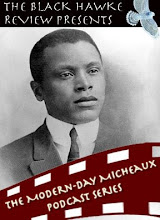Towelhead tells the story of a Jasira, a 13-year old Lebanese girl whose sent to live with her father in Texas after her mother discovers her live-in boyfriend shaved her pubic hair. She deals with her racist father who constantly blames her for everything, her neighbor whom continually makes advances toward her, and her own sexual urges in which she doesn't understand. Towelhead is a coming-of-age drama about racial attitudes and coming into your own as a woman the wrong way.
I can't praise this film enough. The trailer doesn't do it justice, mostly because the film doesn't focus on one particular thing. It's juggles complex issues in the life of a confused teenager and while most films would falter, this film picks just the right spots.
The first story line deals with her father. He's old-fashioned yet a complete hypocrite. He constantly blames Jasira for everything and doesn't practice what he preaches. He often calls the neighbors racist for making judgments on his attitude on the Gulf War due to his race. Yet he forbids Jasira from seeing her boyfriend because he's black, claiming people would respect her less. His girlfriend, on the other hand, is white, and therefore completely acceptable.
The second storyline is the neighbor's family. Mainly the father, Mr. Vuoso played by Aaron Eckhart (The Dark Knight's Two-Face). He's intrigued by Jasira and subtly makes advances toward her. The interesting part is that Jasira welcomes his advances and even eggs him on. This is what makes the story so rich and complicated. Jasira only does this because she's confused about sexuality. She feels like she has to entice the neighbor in order to be a woman. He ends up raping her, twice. The first time without her permission. The second time with her permission. Regardless, due to her age, this is still statatory rape. Jasira is too young to realize what she's doing and Mr. Vuoso is taking advantage of that.
The third storyline deals with her boyfriend. A black kid at school played by Eugene Jones III. Like all teenage boys he's desperate to have sex, but is appropriate enough to ask before acting. Again, Jasira's confusion about sexual attitudes leads her into bed. This storyline is also where race comes into play. Upon finding out that he's black, her father forbids her from seeing him. This is the same kid that taught Jasira to stand up for herself whenever being called a towelhead or sand-nigger.
Again, this film had many storylines and many subjects, but they're balanced very well. There are great performances from all, most notably the three male leads, Aaron Eckhart, Eugene Jones III, and Peter Macdissi whom plays the father. If I had one critique for this film, it's that after about an hour I got tired of this girl constantly being shitted on and mistreated by everyone around her. It got worse and worse and never let up. Thank god for Toni Collette's character who serves as the moral compass the girl and film so desperately need. All in all, this film tackles complex issues the studios are afraid to tackle, from complex characters the studios are afraid to portray. Like Slumdog Millionaire, this is a rare film that doesn't come around too often, but let's hope the recent success of films that go against the status quo changes all that.
CULTURAL INTROSPECTION:
I constantly found myself thinking this is how girls become prostitutes and porn stars. This is where is all starts. From the father who refuses to install any self-confidence in their daughter to the neighbors making inappropriate suggestions confusing their notions of womanhood. It truly takes a village to raise a kid, but when the village isn't right itself kids will stray from their path. Even though Jasira welcomed Mr. Vuoso, it wasn't her fault. She was young and naive. Just like the lost souls that finds themselves in dangerous adult industry professions, most of the time it's not their fault. They were taught as a little kid to be a woman is to be available and that sex is a valuable and powerful tool, rather than a mode of expression.
THE BLACK PERSPECTIVE:
There are two items of race to discuss in this film, one in which I will talk about here and another which will be given it's own post. The latter will be the N-Word debate which in the context of this film became the T-Word debate. Yet the same principles, feelings, and ideological notions apply. Funny how we're all so much more alike than we think
But the former is this portrayal of racism and judgments. Because they are Lebanese, Mr. Vuoso automatically assumes Jasira's father supports Saddam's side in the Gulf War. Not only is this the opposite, but this is the opposite to the extreme. Because of all the backlash towards Middle-Eastern Americans, Jasira's father despises Saddam and even goes as far to protest when the U.S. Government doesn't attack the war in the barbarity that he would like.
Myself, being a black man, often find myself being cautious not to confirm stereotypes when around certain company. Such as not telling jokes so I don't come off as the funny black guy. It's interesting how stereotypes can determine who we are and who we're not. Not that Jasira's father would support Saddam if stereotypes weren't around, but isn't adamantly opposing him not for what you believe but to prove the stereotype wrong just as problematic.
Also Jasira's father forbids Jasira from seeing her boyfriend because he's black. He claims this is because society won't respect her being with a black man and that he didn't make the world the way it was. Of course, this is wrong, but is it racist? He's not saying anything disparaging about the intellect or morals of black people. Just making a decision he feels is smart based on societal views. So are black people who refuse to date white people because of how black people will perceive them any different. Yes, it's a preference, but again, if the preference is based on societal views, does that make it anymore right or wrong.
RATING:








Great commentary. This film was an eye-opener for me, just witnessing how a girl, who looks like a woman, deals with the scrutiny of her sexuality, which she has not yet come to fully understand. I feel like the lead played Jasira with a sensitivity and vulnerability which almost makes you cry at times. I LOVED the fact that her boyfriend was an African American. It was a breath of fresh air seeing a young, though hormone-driven, young man portrayed as sensitive, caring, loving and unselfish. This film is multi-layered and definitely one of my faves of all time.
ReplyDelete